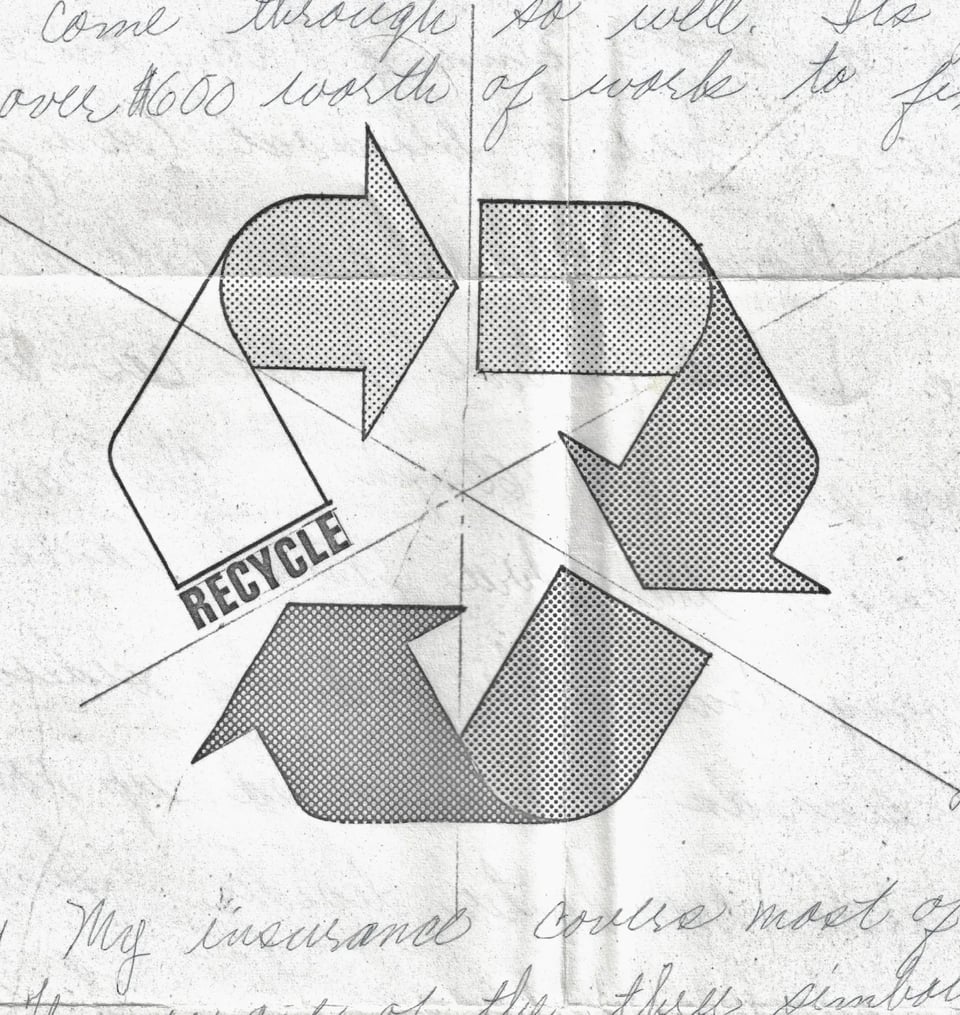r is for rewild
each issue of new terms & conditions is an entry toward building abc glossary — a glossary for an anti-colonial black feminist critical media ecology. contribute your own new term & condition at abcglossary.xyz to be part of this project.
welcome back into this space with me. i chose to honor (Black) August with a season of rest away from the choreographed dance between writing New Terms & Conditions, working the 9 to 5 that affords me time, the moments i look forward to with my wife, sharing time with my loved ones, and tending to the curiosity that fuels my imagination, my research, and the archives. i dreamt of this break being consumed by other aspects of my studio practice but the truth is that felt like swapping one obligation for another, and with that came a sense of guilt. it’s in those moments that i’m grateful for the voice of Tricia Hersey, founder of the Nap Ministry, to remind me that my rest is resistance, that it is reparations, and that it is required.
during this pause, i was able to instead confront the sources of my creativity. it’s so easy to drift away in service to capitalism and lose sight/site of a world beyond what empire desperately tries to convince me, or us, is available and that already exists. one of those sources is that of collective work. i want to acknowledge the collectives that continuously cradle my practice with care and intention, and were places of refuge during this time: forever and always gratitude to the constellation of practitioners drawn together through Seeda School, the place-makers and futurists of BlackSpace, and the radical archivists and dreamers of KyKy archives. all three have been healing circles for my Black queer dreaming that gets called radical when defined within capitalism, white supremacy, and patriarchy’s cravings for complacency.
i chose the term for this issue prior to my August recess, which now feels especially luscious to bask in its possibility: rewild. it is a term from the study of ecology that i’ve been holding on to for some time inside of the Anti-Colonial Black Feminist Critical Media Ecology (abc) framework. i think of the framework in the shape of the widely recognized recycling symbol. exchanging “reduce, reuse, and recycle” for “refusal, repair, and reconnection” but there’s something about the word ‘rewild’ that gestures toward a freedom to roam that requires active participation. we must do it again, and again, and again.

/rēˈwīld/ verb
to restore (an area of land) to its natural uncultivated state (used especially with reference to the reintroduction of species of wild animal that have been driven out or exterminated)
it is a concept that may not at first seem related to our relationship to the internet but it's necessity lies in the ways that we have been herded into using the same select few websites and platforms. the world wide web is a sticky tangled wild web that is being tamed by only a handful of corporations — destroying the beauty of complexity and generative emergence of online connection. rewilding is the act of ensuring the biodiversity of our digital landscapes.
Our online spaces are not ecosystems, though tech firms love that word. They’re plantations; highly concentrated and controlled environments, closer kin to the industrial farming of the cattle feedlot or battery chicken farms that madden the creatures trapped.
— Maria Farrell, We Need To Rewild The Internet
our digital worlds are being subject to the same kinds extraction as our natural resources and physical spaces — and the use of words like ‘ecosystem,’ ‘cloud,’ and ‘farm’ put a cloak over that exploitation. desires for forced control live in how we name, how we classify, and how we categorize, but we are not merely organisms within a system to be organized by the algorithms and optimized for capitalism. through rewilding we keep the internet open for the most vulnerable among us and seed vibrant spaces for play, curiosity, and care that sometimes break, glitch, or greet the occasional bug.
The word eco-system itself stands as a reminder that the history of ecology is enmeshed with systems theory and presupposes that species entanglements are operational or functional. More surreptitiously, a systematic view of the environment connotes it as bounded, knowable and made up of components operating in chains of cause and effect.
This framing strongly invokes possibilities of manipulation and control and implicitly asks: what should an ecosystem be optimized for? — Tega Brain, The Environment is Not a System
i hope you can appreciate this issue of New Terms & Conditions written in between loads of laundry, sips of wine, window-gazing, shared meals, and netflix binges. a wild thing.
Works Cited
‘Nap Bishop’ and founder of Nap Ministry, Tricia Hersey. call the Nap Ministry hotline at 1-833-Luv-Naps for a recorded message and reminder.
Seeda School, founded by Ayana Zaire Cotton. forever indebted to the brilliance of Ayana and her genuine commitment to world-building principles.
BlackSpace, founded by Emma Osore and Kenyatta McLean. i am a project partner with BlackSpace, helping to facilitate workshops using the BlackSpace manifesto, which instills hope in me every day.
KyKy Archives is a digital archive for the stories of lesbians, non-binary, and trans people of the african diaspora, founded by Siddisse Negero and Zora Lynn. i recently joined this collective to help curate and grow this beautiful database.
“we need to rewild the internet,” Maria Farrell, Noema, 2024
“the environment is not a system,” Tega Brain, 2018
Add a comment: